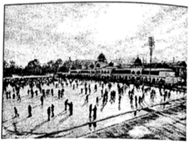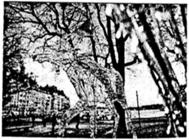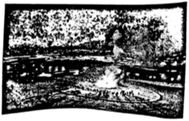题型:阅读理解 题类:常考题 难易度:容易
江苏省无锡市2019届高三上学期英语期末考试试卷(音频暂未更新)

Hungary's capital sparkles(闪耀)in winter and it's a great place to see in the New Year. There's festive cheer on tap, with concerts, folk dancing and stalls selling wine or fruit brandy and traditional chimney cake outsides. New Year's Eve is celebrated with fireworks over the Danube(多瑙河), and it's worth booking one of the many river cruises(巡游)with dinner and DJs (free and open 24/7, but likely to be crowded).
A four-night trip with Travel Republic costs £449 for a family (2 adults with 1 child under 6), departing Stansted on 28 December with Ryanair, with B&B accommodation at the central Atrium Budapest Hotel.

For a slightly more cerebral(理智的)New Year's Eve, Stockholm is a smart choice. The main celebration is at Skansen, Sweden's oldest open-air museum. Enterainment starts at 8 p.m. with singing and dancing, and peaks with a recitation of the poem Ring Out. Evening tickets are £14 for adults (children under 6 go free), or there are new day and evening combination tickets (£16 adult/£5 child). On New Year's Day, early birds can try an introduction to ice skating (8 a.m. daily, £139).
Book it Ryanair, Norwegian and SAS fly to Stockholm from several UK airports.

The land of fire and ice lives up to its name on New Year's Eve, when about 90 bonfires(篝火)are lit across the country. Some bonfires are accompanied by Icelandic singing; most start about 8 p.m. and finish by 10 p.m., which can be a good time to see the northern lights. After the fires, everyone goes home to watch Áramótaskaup, a TV show that has been running on 31 December since 1966. But that doesn't mean the party is over just before midnight, they all come back out to let off an astonishing amount of fireworks, with profits going to Icelandic Search and Rescue Association, which does life-saving work, and is run by volunteers and is a cause close to most Icelanders' hearts.
Book it Wow Air and Wizz Air, easyJet and Icelandair fly to Reykjavik from several UK cities.
A Language Programme for Teenagers
Welcome to Teenagers Abroad! We invite you to join us on an amazing journey of language learning.
Our Courses
Regardless of your choice of course, you'll develop your language ability both quickly and effectively.
Our Standard Course guarantees a significant increase in your confidence in a foreign language, with focused teaching in all 4 skill areas—-speaking, listening, reading and writing.
Our Intensive Course builds on our Standard Course, with 10 additional lessons per week, guaranteeing the fastest possible language learning (see table below).
Course Type | Days | Number of Lesson | Course Timetable |
Standard Course | Mon-Fri | 20 lessons | 9:00-12:30 |
Intensive Course | Mon-Fri | 20 lessons | 9:00-12:30 |
10 lessons | 13:00-14:00 |
Evaluation
Students are placed into classes according to their current language skills. The majority of them take on online language test before starting their programme. However, if this is not available, students sit the exam on the first Monday of their course.
Learning materials are provided to students throughout their course, and there will never be more than 15 participants in each class.
Arrivals and Transfer
Our programme offers the full package—students are taken good care of from the start through to the very end. They are collected from the airport upon arrival and brought to their accommodation in comfort. We require the student's full details at least 4 weeks in advance.
Meals/Allergies (过敏) /Special Dietary Requirements
Students are provided with breakfast, dinner and either a cooked or packed lunch (which consists of a sandwich, a drink and a dessert). Snacks outside of mealtimes may be purchased by the student individually.
We ask that you let us know of any allergies or dietary requirements as well as information about any medicines you take. Depending on the type of allergies and/or dietary requirements, an extra charge may be made for providing special food.
Latrice Brown was excited about starting her junior year. She had volunteered to take part in the Lincoln High School Friendship Program. As an upperclassman, she would be assigned a “freshman(新生) friend”. Her duties would include helping her friend get used to high school life by offering friendship. Latrice thought it was important to have someone with whom to talk and share concerns. She knew that the friendship program was likely to make the freshman year of high school a positive experience. On August 2nd Latrice received a notice in the mail about the schedule of events for the freshman orientation (适应指导).
Freshman Orientation
|
TO: Latrice Brown FROM: Mrs. Gomez, Guidance Counselor, 555-7295 DATE: August 1st SUBJECT: Freshman Friendship Program FRESHMAN FRIEND: Susan Brooks , 555-2168 |
Please call your freshman friend and introduce yourself over the telephone.
Confirm that he or she will be attending the orientation.
|
SCHEDULE OF EVENTS FOR ORIENTATION Wednesday, August 13—9:30 A.M. to 1:00 P.M 9:30 A.M. to 10:30 A. M Upperclassmen and freshmen will gather for a gathering in the hall. Student Council president Sarah Wilke will give a speech titled “What It Means to Be in High School”. Mr. Reick, the principal, will welcome everyone to Lincoln High School and formally introduce each upperclassman to his or her freshman friend. After being introduced, please go to the café. At this time pick up your friend's class schedule and locker number at the guidance counselors' (顾问) table. 10:30 A.M to 11:30 A. M Start your school tour at your friend's locker to ensure it works. If there is a problem, report it to Mr. Mulholland, the assistant principal. Then walk to the classrooms on the class schedule in the order in which they are listed. This will help familiarize your freshman friend with the schedule and the layout(布局) of the school. Discuss high school life but try not to supply your freshman friend with too much information. High school is confusing and frightening when you're just starting and everything is new. 11:30A.M to 1: 30 P.M Return to the café to enjoy pizza and to take part in a question-and-answer meeting. Monday, August 18 ( The First Day of School)—All Lunch Periods Meet your freshman friend in the café during lunch and discuss the morning of the first day. After lunch take your friend to the courtyard between the gym and the art rooms. Each club will have a table set up with information about its activities after class and a sign-up sheet for students who wish to join. Club officers will be available to answer questions and to encourage freshmen to take part. |
试题篮